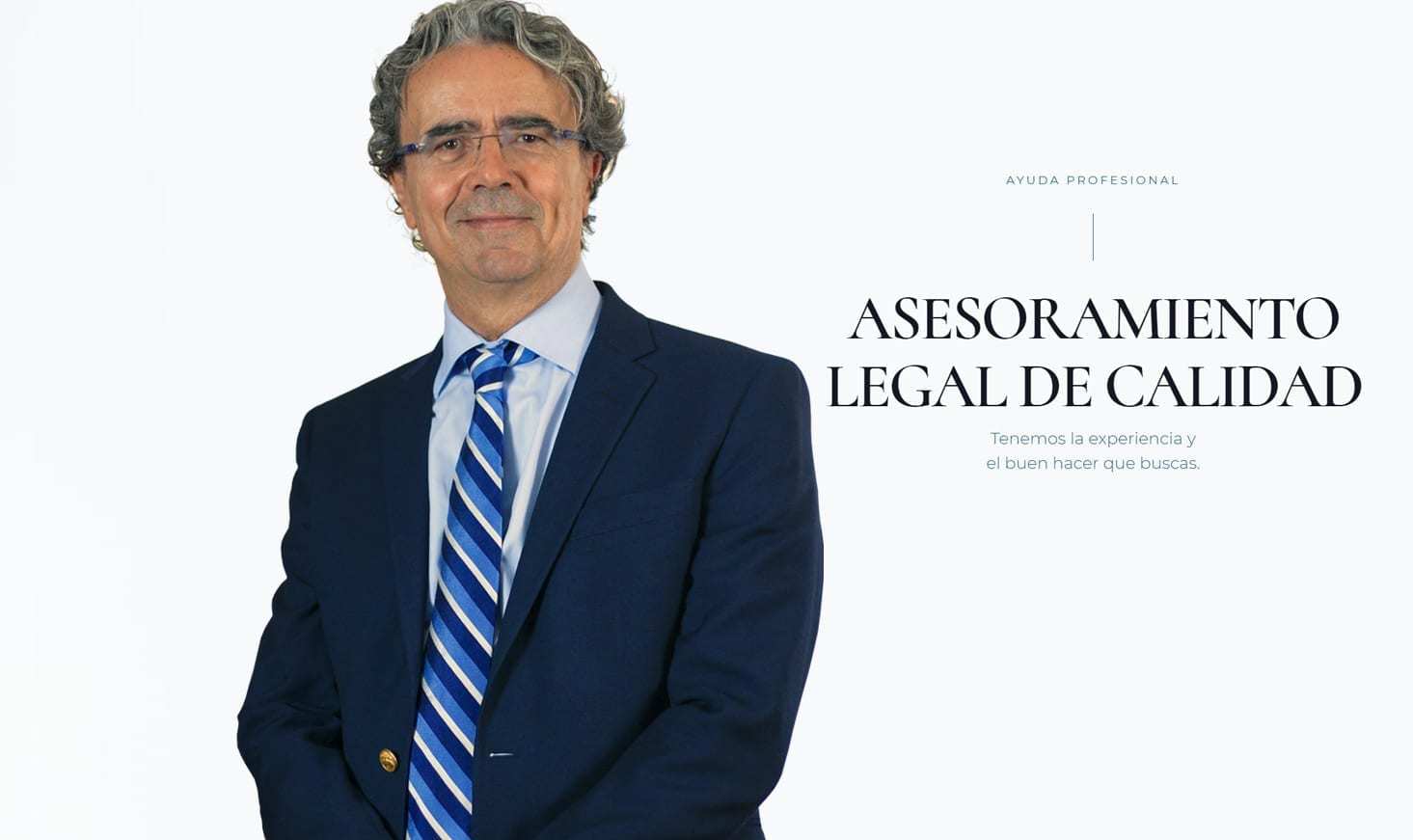HORIZONTAL PROPERTY IN SPAIN (2ND PART)
REPRESENTATIVE DEPARTMENTS IN SPAIN
Law 49/1960 of 21 July 1960 on Horizontal Property establishes a series of minimum departments or organs that must exist in every Community, without prejudice to the possibility of establishing additional departments in the Community Statutes, but always of an obligatory nature, including those established by the Law.
If you have any doubts, do not hesitate to contact Carlos Baño León lawyers in Alicante.
THE PRESIDENT
This is the person who holds the legal representation of the Community of Owners for all purposes and his functions are regulated in art. 13 of the Law, so we take it as reproduced and only highlight the responsibility he has with the other co-owners as well as with third parties, given his status as legal representative of the Community of Owners.
By virtue of this legal capacity and representation of the Community, he represents not only in court but also before third parties and has full legal capacity to bind the Community for legal purposes.
The Statutes of the Community of Owners establishes the way of election, normally at random and the important thing is that it is not renounceable, so the exercise of this position is obligatory and for the time established in the Statute, normally one year.
It is important to say that the President has to be the owner or co-owner of the property or component of the community without being able to appoint third parties outside the Community of Owners.
It is important to say that the President can be a commercial company if it is the registered owner of the flat or component of the Community of Owners.
Finally, as we are sometimes asked, it is possible that the President may occasionally delegate a third party member of the Community to preside over a meeting, but always on an occasional basis and not on a regular basis, given that the post which is obligatory is of a personal nature and cannot be delegated, without prejudice, as we have said, to any occasional action.
THE SECRETARY
This figure is provided for in the Law and his or her functions are merely administrative, taking notes of the meetings. It may coincide in the person of the President and the Administrator.
THE ADMINISTRATOR
According to the Horizontal Property Law, the post of Administrator and Secretary-Administrator may be held by any owner as well as by natural persons with sufficient professional qualifications and legally recognised to carry out these functions, and it is also very common for legal persons to hold these posts.
The Administrator is responsible for the functions established in a clear and detailed manner in art. 20 of the Horizontal Property Law, which we refer to so that the reader can get to know it, as there is no difficulty in understanding it.
THE OWNERS’ MEETINGS IN SPAIN
Decisions which affect the common good of the co-owners must be adopted at the Meeting of Owners.
The Horizontal Property Law itself establishes as an exception a series of matters in which it will not be necessary for the co-owners to approve them by prior agreement at the Meeting, as stated in art. 10.
In fact, the aforementioned Law establishes that there are several positions in which the Community must act without the need for prior agreement, for example:
1.- Operations and works necessary for the adequate maintenance and fulfilment of the duty of conservation of the property, this being a mere enunciation of the case which is more extensive and of course it will have to include those works that the Administration requires for conservation.
2.- Works necessary to guarantee reasonable adjustments in terms of universal accessibility, this being the principle of the wording of the text and always implies that when we are dealing with these cases, it will not be necessary for the agreements to be approved by the Board and also adds the obligation to carry out the works when they are paid for with public aid, which covers a minimum of 75% of the same.
Then a whole series of other actions are listed which we will not repeat and we refer for these purposes to the aforementioned article 10, from which you will obtain the relevant information.
If you want to know more about this topic, do not hesitate to contact Carlos Baño León, an office of lawyers in Alicante.
Apart from these exceptions, all decisions must be approved by the General Meeting and, depending on the subject matter, certain percentages are required for their approval, just as certain percentages are established for the General Meeting to be deemed to be constituted.
Art. 17 of the Horizontal Property Law classifies and orders the matters within the competence of the Meeting and its corresponding coefficient for its constitution and approval.
Given the important casuistry regulated, it is vain to repeat it in this article and we refer to the aforementioned article, although we would like to explain the different criteria.
If you have any doubts, please contact our law firm in Alicante.
On the one hand, the Law distinguishes between votes of owners and votes of participation quotas in such a way that it separates both concepts when requiring the quorum for the approval of resolutions and the attendance of owners at the Meeting.
The Law establishes different majorities ranging from a simple majority of owners and participation quotas to the need for unanimity depending on the issue to be approved.
For example, and very briefly:
Unanimity will be required for those that imply approval or modification of the constitutive title of the Horizontal Property or of the Articles of Association, and said unanimity must coincide with the total of the participation quotas.
A third of the members of the Community, which in turn will represent a third of the participation quotas, will be required for the approval of the installation of common infrastructures for access to telecommunication services.
The favorable vote of the majority of the owners representing the majority of the participation quotas will be required for the approval of works aimed at removing architectural barriers that hinder the access or mobility of disabled persons, among other works.
The favorable vote of three fifths of the total number of owners representing three fifths of the participation quotas will be required for the establishment or suppression of porter’s lodge, concierge, surveillance or other common services of general interest, among other matters.
The need for agreement at the General Meeting will not be required, but only prior notification to the Community, for those who wish to install an electric vehicle charging point for private use in the car park of the building, as long as this point is located in the individual parking space of the garage.
Finally, for the validity of the other agreements, the vote of the majority of the total of those represented who in turn represent the majority of the participation quotas will be sufficient, and in second call, the agreements adopted by the majority of those present will be valid, as long as they in turn represent more than half of the value of the quotas of those present.
Finally, if the aforementioned majorities are not obtained, it will be necessary to appeal to the Judge, who will hear the parties and decide in equity.
RESOLUTIONS AND THEIR CHALLENGE IN SPAIN
The agreements adopted by the Community in the Meeting of Owners must be notified to the co-owners, whether or not they have attended the Meeting that adopted the agreement, and they will have a period of time to challenge them in court.
This period will be 3 months, except in the case of acts contrary to the law or the articles of association, in which case the period will expire after one year.
Art. 18 of the Horizontal Property Law regulates this section in detail and in a summarised and clear manner, so we refer to the aforementioned legal text as the reader will understand it without the need for any explanation.
CLAIMING COMMUNITY FEES IN SPAIN
According to art. 21 of the Horizontal Property Law, the agreements of the General Assembly relating to the claims of community debts can be taken to the Court by means of the process of the ‘Juicio Monitorio’.
This procedure is provided for in the LEC for certain cases, including claims for community debts.
The relative speed of this judicial procedure confers a tool to the Communities that very often resort to this type of judicial procedure to obtain the collection of the expenses owed.
We take advantage of the fact that we are contemplating this procedural issue to comment on a very important question, and that is that community debts have an early statute of limitations of 5 years, once the Supreme Court has already established its doctrine, which applies article 1966.3 of the Civil Code in these cases.
Undoubtedly related to this is the question of the attribution of privileged credit in the event of seizure by establishing that the property or flats are affected during the current year and for the debt of 3 years previously, which implies that in the event of debt this credit is preferential when competing with other credits and only behind the salary credit, hence the importance of claiming in time to take advantage of this recognition of the right to recognition of privileged credit.
This means that the Law has granted to the community credits a privilege of the real affection of the flats that will respond to the debts of the community according to the Law.
This means that the Community of Owners in situations of non-payment should not delay if they do not want to find themselves with the prescription of the debt and what is more important with the legal impossibility of affecting the property to the payment of the debt.
ADDRESSES FOR NOTIFICATION OF AGREEMENTS AND SUMMONSES IN SPAIN
This is a question which is not trivial and generates a lot of controversy, even though the Horizontal Property Law requires the owner of the property or premises or another component to communicate an address which for these purposes does not have to coincide with that of the property or flat of the Community. Failing this, the valid address is that of the home which forms part of the Community of Owners.
Without prejudice to this, and as a complementary notification system, mailboxes and even under the door are acceptable as long as it is the custom among the co-owners.
It is also advisable to publish the notice on the notice board in the most visible place and the summons and summons even by e-mail and WhatsApp is also accepted, although this may present some problems of proof in the event that a claim is made against the Community due to ignorance of the summons or notification.
Our advice is to always require the neighbor to give their address, and failing that, without prejudice to notification at the address, use the complementary systems of notifications that we have already mentioned to avoid contestation.
In any case, and in the event of a lawsuit, the most important thing is that knowledge of the notification or summons or of the approval of the agreement is accredited, and this will always be fundamental, which is why proving this will often be sufficient.
Finally, it should be pointed out that the Law is clear when it indicates that it is not possible to have an address abroad, so there is no doubt that if it is given, it will not be valid and it should be summoned and notified at the address of the building and with other precautions such as letter mailing and notice board, all of this to avoid challenges.

CARLOS BAÑO LAW FIRM
At our Law Firm in Alicante, we are experts in Real Estate Law, so do not hesitate to contact us if you need us.

“Lawyer in Alicante Carlos Baño León”



